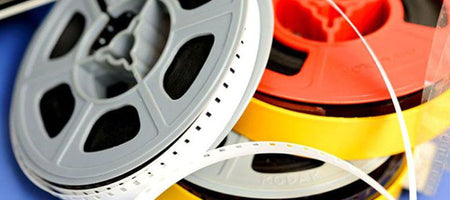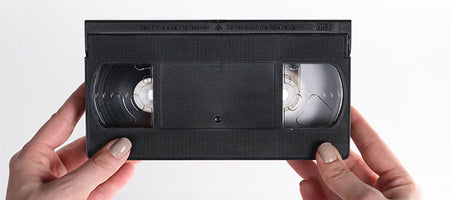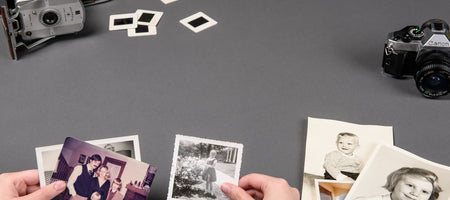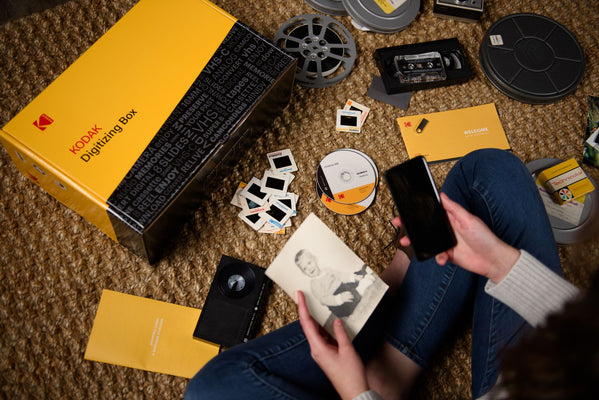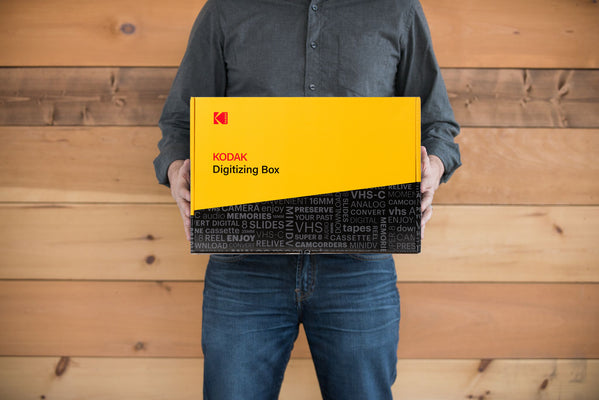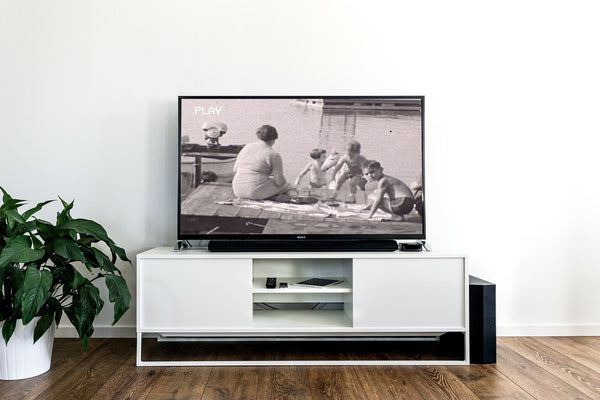The cassette tape was the crowning glory of the ‘80s. Everyone had a tape player at home and in their car, and people could even listen to their tapes on the go with the invention of the Walkman.
The cassette was a revolutionary invention, and lots of people were sad to see it go out of style once CDs took over.At KODAK Digitizing, we see a lot of analog media, including cassettes, in various states of quality. Typically, the better the quality of the materials, the clearer and better the outcome of the digital copy. If you’re looking to get some of your media digitized, it’s always great to send it to us in the best possible condition. So if you have some cassette tapes that are damaged, you may be wondering if it’s possible to repair them before digitization.
The answer is a little complicated, as it’s dependent upon how much damage those tapes have accrued and what kind of damage there is. The first thing to try is to play your tape on a professional tape deck. Many professionals recommend this to salvage problem tapes.
Physical Damage (Cuts, Tangles, Tears)
Rips, tangles, and tears happen and can cause terrible damage to audiotapes. The only way to repair a ripped audiotape is to use splicing tape to repair the tear. In these scenarios, it may be best to request help from a professional tape repair service instead of trying to fix your tape at home.
Water Damage and Your Cassette Tapes
Water damage happens. Whether your tapes are submerged in floodwater or have just been stored in a damp environment like a basement, it’s common for tapes of all kinds to incur some form of water damage. If exposed to floodwaters, dirt and debris can get lodged inside the cassette, making it impossible to play the tape altogether or causing skipping. Mold and mildew can grow alongside the tape inside the cassette when cassettes are stored in dank environments like basements, crawlspaces, garages, and attics. These things happen, but they can badly damage your tapes. There are ways to clean tapes that have mold or mildew growth, and it’s possible also to remove dirt and debris from cassettes with a little precision. Again, it is best to consult a professional conservator or repair service when dealing with significant damage.
We hope that this article gives you a little hope if you have some damaged cassette tapes. There are professionals out there who know how to properly handle the sensitive mechanisms inside cassettes and can help you restore your damaged tapes. It is not recommended to try to clean or repair cassette tapes at home unless you have expertise in doing so. There are very small parts inside cassette tapes that can be easily lost, and handling the tape itself can cause even more damage than what was there to begin with.
Once you have your cassettes repaired, consider digitizing them with Kodak. Digitization is the only way to preserve your memories forever, as all analog media will eventually degrade and become damaged. Kodak makes digitization simple by offering free shipping and handling, step-by-step tracking, and amazing customer service. Digitization is key if you want your tapes to be in your family for many generations. Try KODAK Digitizing today!

